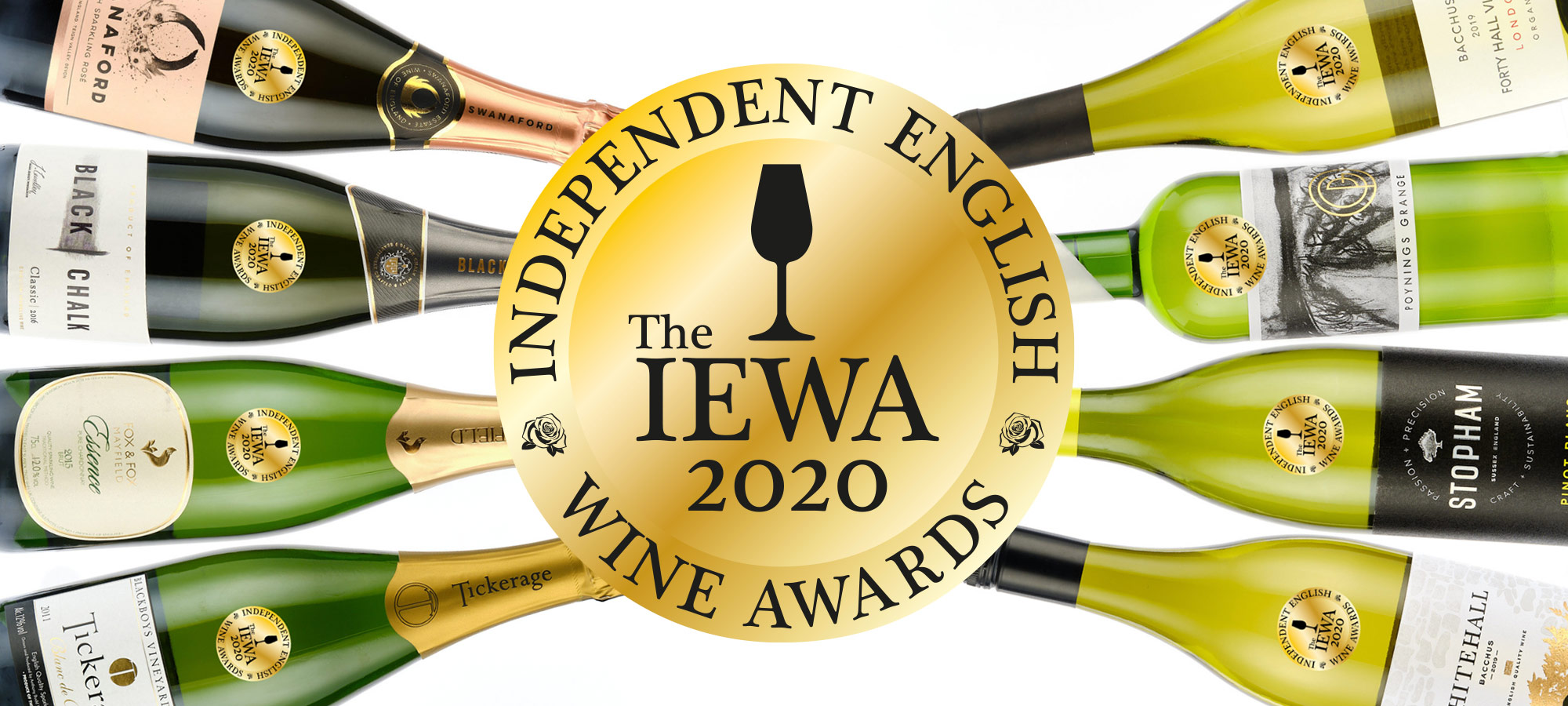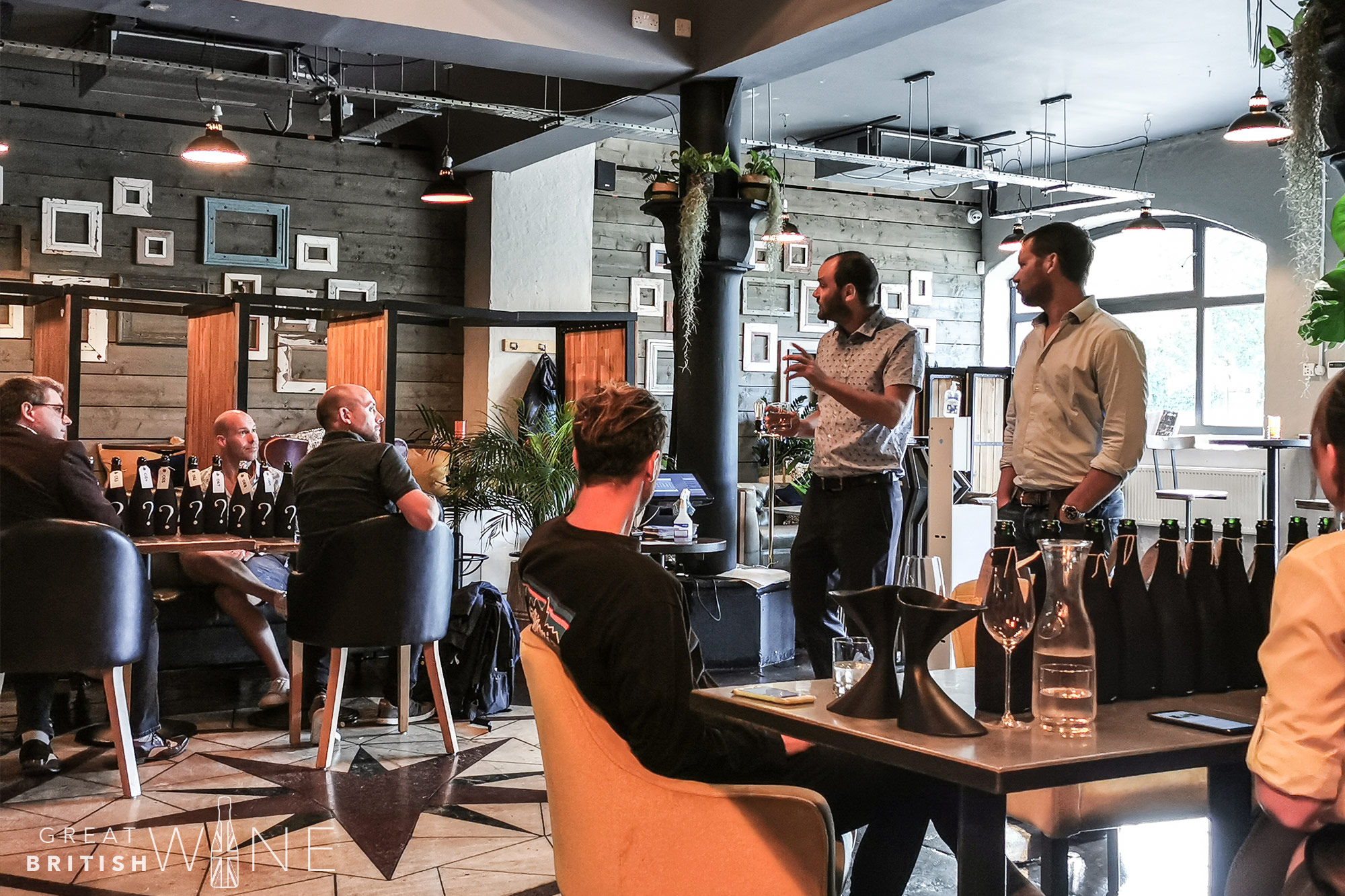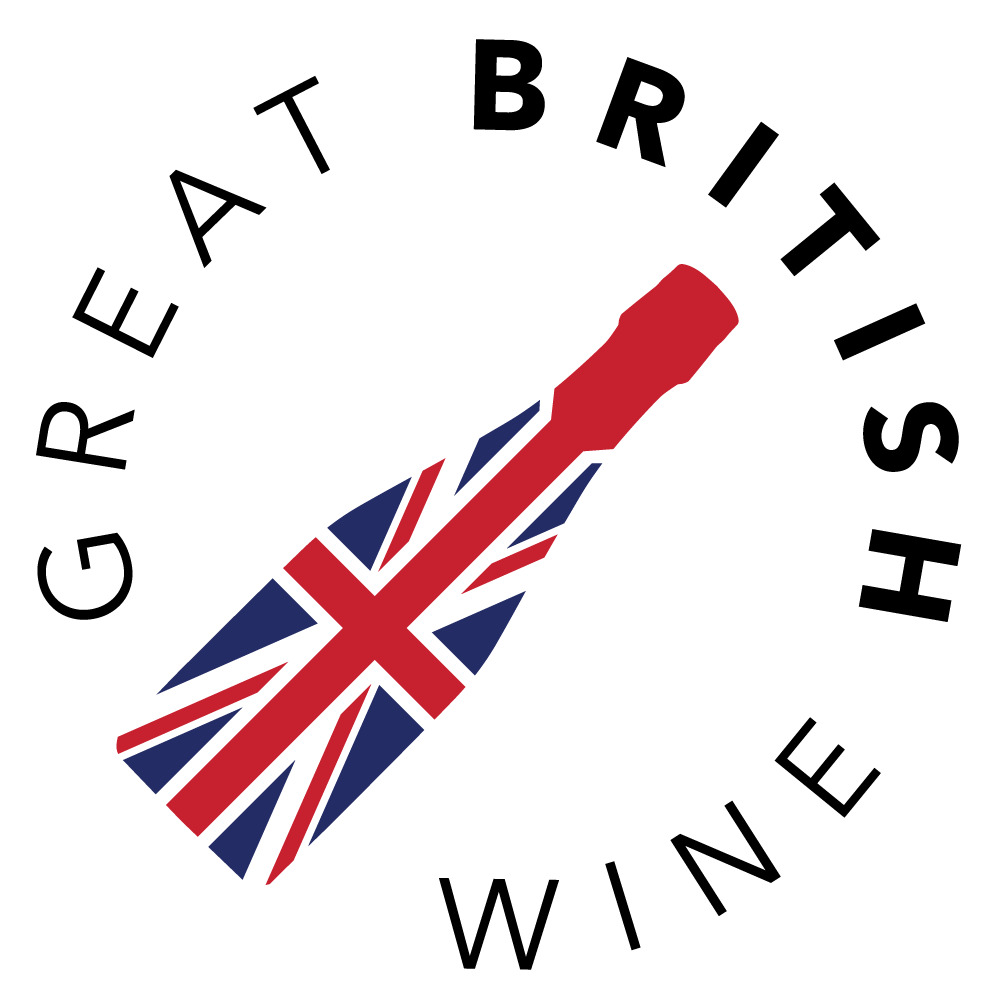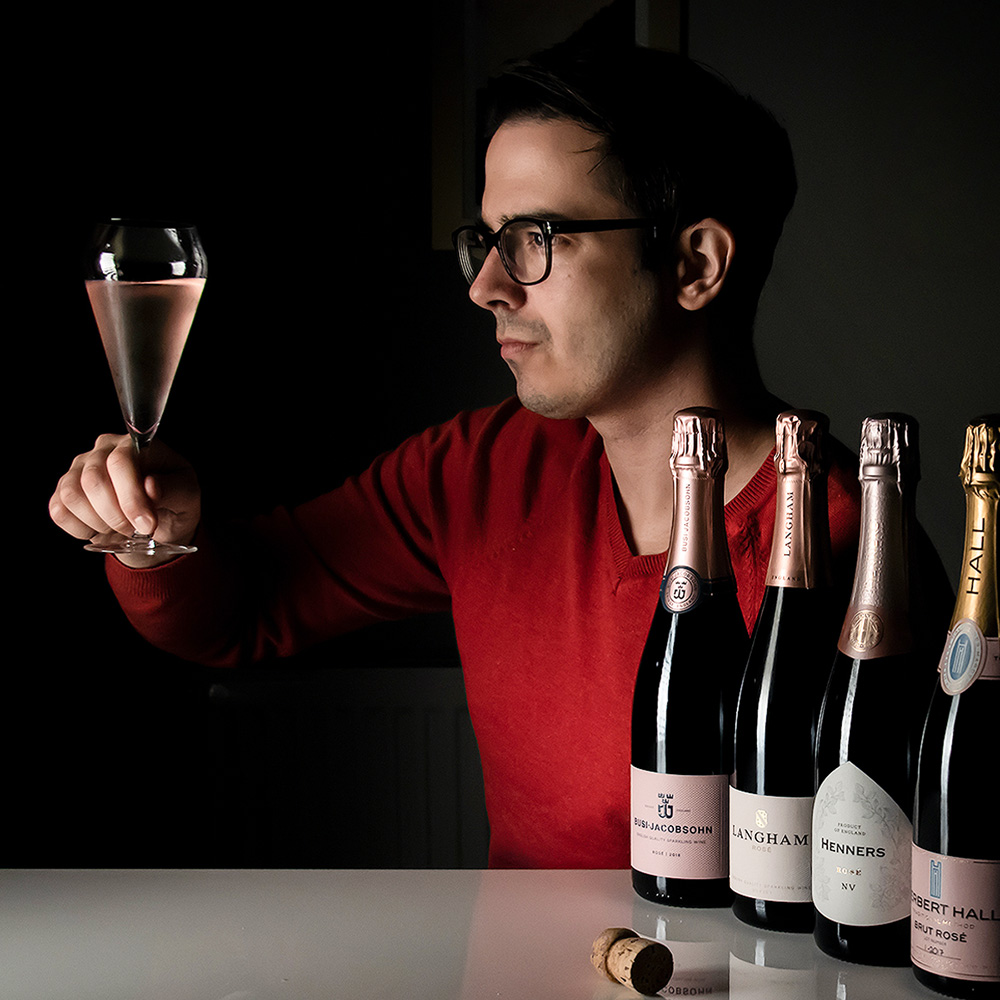
It’s the English wine event that I look forward to more than any other each year. Yes, there are other wine competitions out there, but the IEWA is the only one I am truly part of and have been since its inception by founder, Alex Taylor, in 2017.
Now in my fourth year judging in the competition, I see the IEWA as a chance to firstly benchmark some of the wines I have already tasted and rated throughout the year. Secondly, it’s perfect as a platform to discover some new wines or producers that may have otherwise eluded my palate.
With the competition having been postponed by five months, and much still uncertain across the country, it was through Alex’s sheer organisational resilience and The IEWA’s excellent social traction that entries were once again up this year. There were a total of 147 entries and there was a frequency of 75% wines that received a Gold, Silver or Bronze medal. That’s down a little from previous years, and the number of Gold Medals awarded this year, 15, was down from last year’s 22.
But that’s not to say that quality was down – far from it, I would say that the consistency and overall quality, particularly in the still white and sparkling wines, was up this year. I would say that our expectations for English wine, both still and sparkling, has grown. There was a lot of great sparkling wine entered this year, but fewer (six in total) we felt were real stand-outs. One additional observation was that some notable producers were missing from the line-up this year, which would have also had an impact on the sparkling medal ratios. This did allow some other producers to really shine, however, with Tickerage scoring a double Gold with their first year in the competition, and Black Chalk’s signature Classic 2016 taking home the title of Overall Winner for sparkling wine. And what a wine that Black Chalk is!

On the still wine side, I commented last year that I hoped the category would have shown a little better. This year I got my wish, as the still whites were truly shining. Last year not a single Bacchus took home a Gold, but this year a whopping six gratified the judges’ palates. With four of those being young 2019 releases, two barrel fermented and one stunning five-year-aged example, the grape is absolutely on form in 2020. Ultimately though, Stopham secured a hat-trick of success with their Pinot Blanc 2018, taking home the Overall Winner for still wines for the third year in a row.
Chair of judges Liam Steevenson MW commented:
The IEWA is a brilliantly organised event, judged by the most balanced and capable panels I have ever judged with. Other competitions should take notice – this is how to do it! Winemakers, journalists, Industry experts and the UK’s greatest wine advocates working together on one room – it’s very special indeed.
What I love about this event is that each year we becoming tougher judges, a direct result of ever-improving wines across the board.
I am so excited to see that the UK wine scene is no longer the preserve of big, well funded estates. The quality change in the small, artisan producer set is where the most obvious improvement is coming from. The UK’s wine scene is starting to wake up to the fact that ‘small is beautiful’.
Liam Steevenson MW, Chair of Judges
As with my previous year’s coverage on the IEWA, I’ve focused here on the Gold medal winners, but the full list of all Medal winners can be found over at www.iewa.uk
The Gold Medal Winners
Focus on the Overall Winners
Black Chalk Classic 2016
Region: Hampshire
This is everything you could ever want from an English sparkler. It has racy acidity, pinpoint precision and sublime structure, seasoned with delicate complexity – absolutely stand-out!
Stopham Pinot Blanc 2018
Region: Sussex
A familiar face in the IEWA, this year it was Simon Woodhead’s Pinot Blanc that took the top accolade. There’s lively citrus, chalky mineral textures with juicy pear and refreshing melon.
John’s Gold Medal Highlights
Poynings Grange Bacchus 2015
Region: Sussex
A fascinating contrast to the young Bacchus, this 2015 moved towards the grape’s Riesling parentage with its preserved citrus, dried mango and smoky, oily hints. Magnificent.
Forty Hall Bacchus 2019
Region: London
A stellar Bacchus with a heart of gold. This is a really considered wine with cut grass and pear drop flavours plus distinctive mineral and herbaceous characteristics. Outstanding.
Tickerage Blanc de Blancs 2011
Region: Sussex
A stunning example of the ageability of English Blanc de Blancs. This brilliant wine from Tickerage stood out with its baked apple, apricot and spiced biscuit richness.
Fox & Fox Essence Chardonnay 2015
Region: Sussex
A fascinating contrast – this is one of the purest Blanc de Blancs I’ve tried. It has striking and precise crisp orchard fruit flavours with a crystalline structure.
Swanaford Sparkling Rosé 2018
Region: Devon
This playful and lively rosé appealed with its bright summer berry flavours, lots of cherry, raspberry and a citrus twist. Fresh, clean and delicious!
Oastbrook Pinot Gris 2018
Region: Sussex
Pinot Gris continues to stand out, and this Oastbrook demonstrates intense, vibrant ripe peach, lime and floral textures. This is bright, intense and structured.
Whitehall Bacchus 2019
Region: Wiltshire
This bright Bacchus demonstrates a New World immediacy and intensity. It has zingy citrus, pungent and tangy tropical fruits and classic nettle and elderflower aromatics.
Furleigh Estate Bacchus Fumé
Region: Dorset
It’s great to see this textural Bacchus from Furleigh shine as it’s my favourite still in their range. There’s a generous palate of peach, tropical fruit and lime zest, seasoned with toasted oak.
A few words on the 2020 competition from Alex:
Once again the IEWA judging panel has done an incredible job, and turned out a set of results which I think serve as a fantastic celebration and snapshot of English wine right now
This is the fourth year we’ve run our indie competition, and in that time we’ve seen so much change – it’s quite incredible. IEWA20 saw more entries than ever before, giving the clear sense that no matter what 2020 throws at the industry, producers are not holding back on marketing spend at this critical time, which is such an important, positive sign. And as for the results, in the two trophy winners – Black Chalk for sparkling, and Stopham for still – it seems to me that we have not only identified the two finest wines in the competition – both undeniably world class – but here are two incredible standard bearers for English wine here, because these wines are not only objectively outstanding and technically excellent, but crucially they’re also really consumer-friendly and super-accessible, I think. At this stage, that’s really important for English wine. As for the Bacchus results, six golds is such a strong showing, and within that there were several different styles in there, including, excitingly, an older example from 2015 which is a fascinating turn-up and a real conversation piece.
The sparkling category felt like it was flight after flight of just really high quality sparkling wines, but personally, I was thrilled to see the panel award more gold medals to still wines than sparkling this year – which is the first time that has happened. ‘English still wine quality is catching up with that of sparkling’ may be an overstatement, but it is a narrative I’m happy to help drive! And while the quality has gone up in the years we’ve been judging, I was pleased to see the number of medals actually go down pro rata, showing that the expectations of our judges have, in turn, risen. So, with 15, we awarded 25% fewer gold medals this year, which is important for credibility I think. After all, it’s not a school sports day.
Thanks to all of our wonderful judges, and of course to Liam for overseeing the panel so expertly. And congratulations to everyone who secured medals this year. It doesn’t end here, and we’ll continue fanning the flames – and value – in your directions in the coming months. Cheers!”
Alexander Taylor, IEWA Founder



Pingback: This Week’s Latest Wine Headlines: September 12—18 - Briscoe Bites